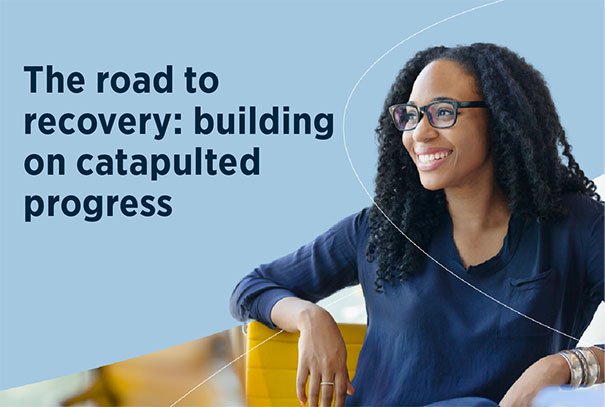
It’s amazing what can be achieved when organisations have to think fast. Plans to address culture and purpose - long-term strategic plans set out well prior to the pandemic - were suddenly released from the usual shackles of the boardroom and governance controls as lockdown kicked in. This was all done in real-time: a live show rather than a pre-record. Organisations thinking on their feet as opposed to spelling out a set of values on a wall. Leaders are now more visible than ever before. Organisational purpose is finally starting to come through loud and clear. And remote working employees are proving that they don’t need someone standing over them, checking whether they’re keyboard bashing, in order to be productive.
“We have to fight to keep the great that has been borne from urgent necessity”
Now, faced with an underlying economic catastrophe, the narrative is quickly shifting towards business recovery. This is all about survival. Organisations are going to need a lift-off performance during the return to work phase in order to “up” the numbers. For many, this will necessitate “right sizing” their population. And it will involve relying on leaders even more to steer a course, while also hanging on to the lessons learnt during lockdown.
“We’re relying on our leaders right now. We need to support their wellbeing”
If the experience of organisations in AsiaPac is anything to go by, we could see an alarming trend in leadership burnout coming our way. We’re 6 weeks behind them. And HR Directors have real concerns here, citing remote management and leadership wellbeing as key areas of focus.
But it’s not all doom and gloom. There are some genuine opportunities here.
The key questions facing HRDs now are: how do we return and reengage our teams so that they’re on the journey with us? And how do we redefine strategy around culture and purpose in a way that is altogether more agile?
“Our future workforce is watching us. And they’re searching for a genuine, shared purpose”
The smart organisations - the ones who hang on to the lessons learnt during lockdown - will undoubtedly be the winners. Their people will be galvanised around a clearly articulated purpose. Carefully communicated, this will not only help with engagement and productivity, but also recruitment of talent.
Where there were particular skills shortages pre-pandemic - think data scientists and analytics - organisations that are on the ball with purpose have a once in a lifetime opportunity to recruit. Previously, they were just going to the highest bidder. Now, the whole nature of the employment market has shifted.
“Technology and rapid digitisation have reshaped our workforce forever. We need to reskill our people to cope”
The borderless workspace is becoming a reality. Pre-pandemic, it could cost you $250,000pa to hire, say, an average programmer in San Francisco when you factor in office space and rent. But lockdown has proven that we don’t need traditional workspaces. Business is freed from the traditional limitations of environment.
Long-term, this will bring about necessary wage deflation. It also holds the potential to spread wealth and talent to other parts of the world.
“What we missed in lockdown, we can’t get wrong in recovery”
In short, lockdown brought challenges but it also kickstarted opportunities. The tougher times ahead will require a combination of fast and slow thinking: building on the agility exhibited during the first three months, while ensuring teams are motivated to remain on the same path as you. Success is about progress, not perfection.
These insights were taken from the latest Gallagher HR Director Forum, one of a series of invitation-only best practice sharing events. To find out more about our HR Director Forums, please get in touch.


